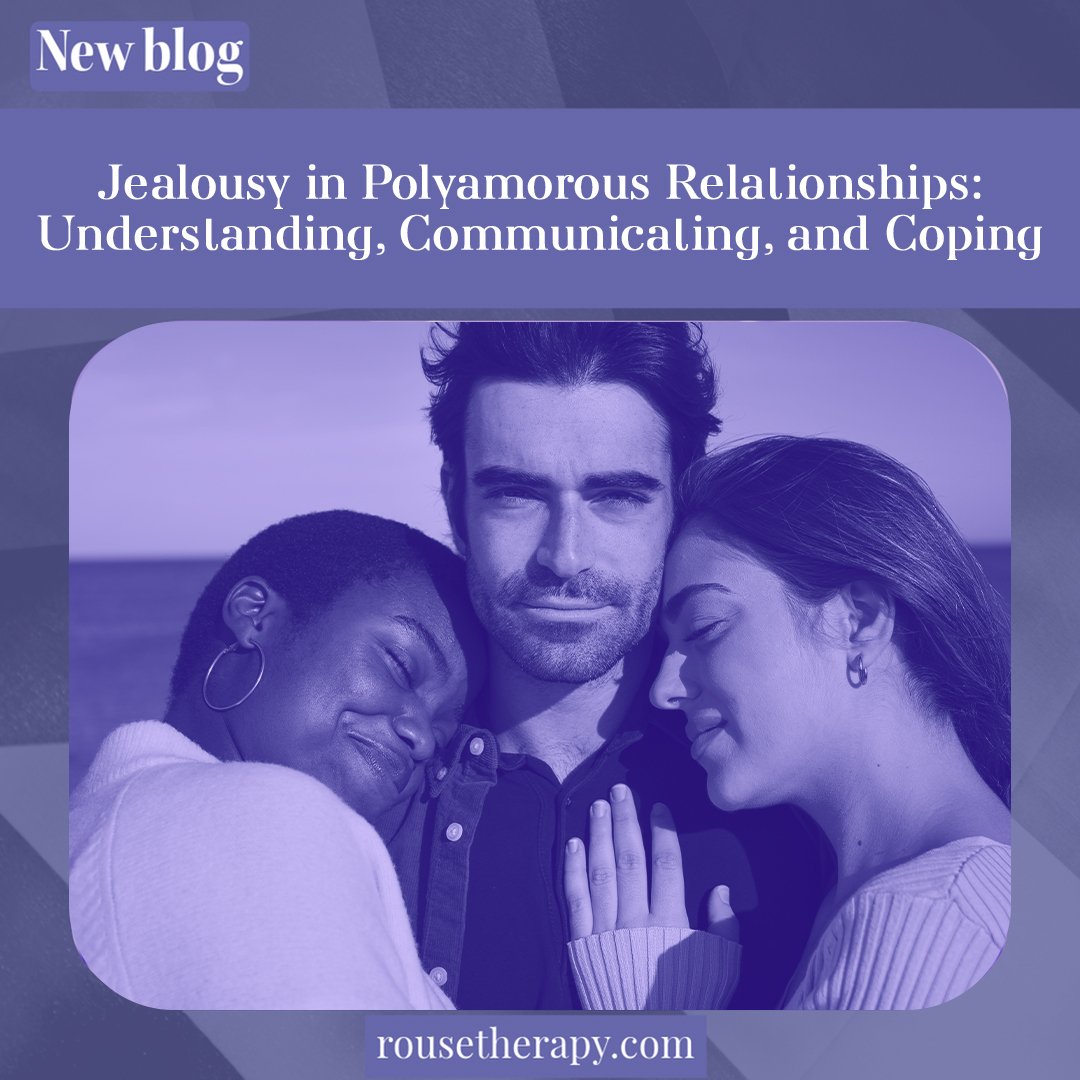
Jealousy in Polyamorous Relationships: Understanding, Communicating, and Coping
Jealousy is a common emotion in all types of relationships, but it can present unique challenges in polyamorous dynamics. By addressing jealousy directly and constructively, you can maintain healthy and fulfilling connections with all your partners.
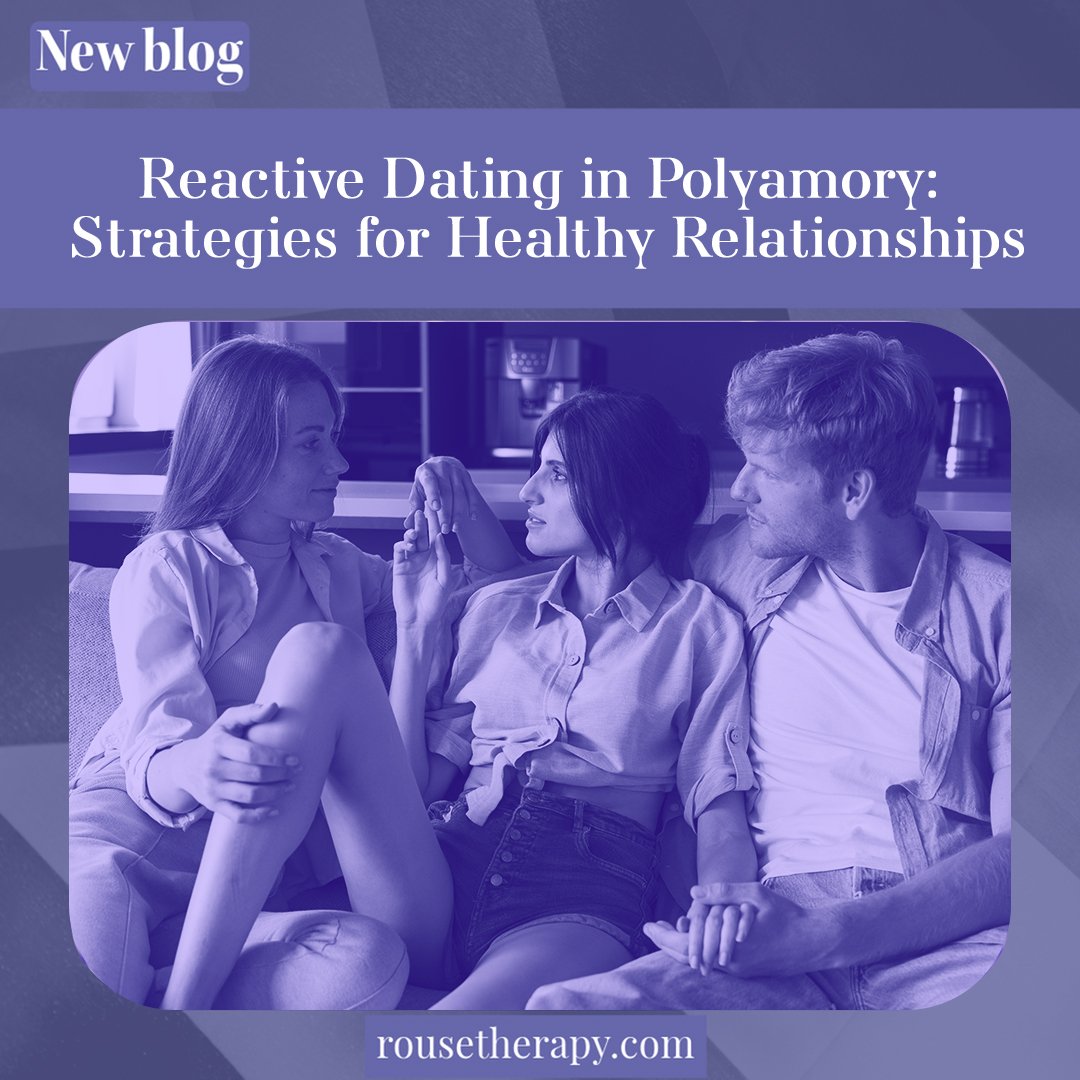
Reactive Dating in Polyamory: Strategies for Healthy Relationships
In polyamory, multiple loves and connections are celebrated, and maintaining healthy relationships requires clear communication, self-awareness, and mutual respect. However, even within this inclusive framework, complexities can arise. One such complexity is "reactive dating."

Discussing Turn Ons and Turn Offs with Your Partner
Sexuality is an essential aspect of human life that helps promote physical and emotional well-being in individuals and relationships. While sex might be a taboo topic for some couples, the truth is that discussing sexuality with your partner can help improve the quality of your intimate relationships.
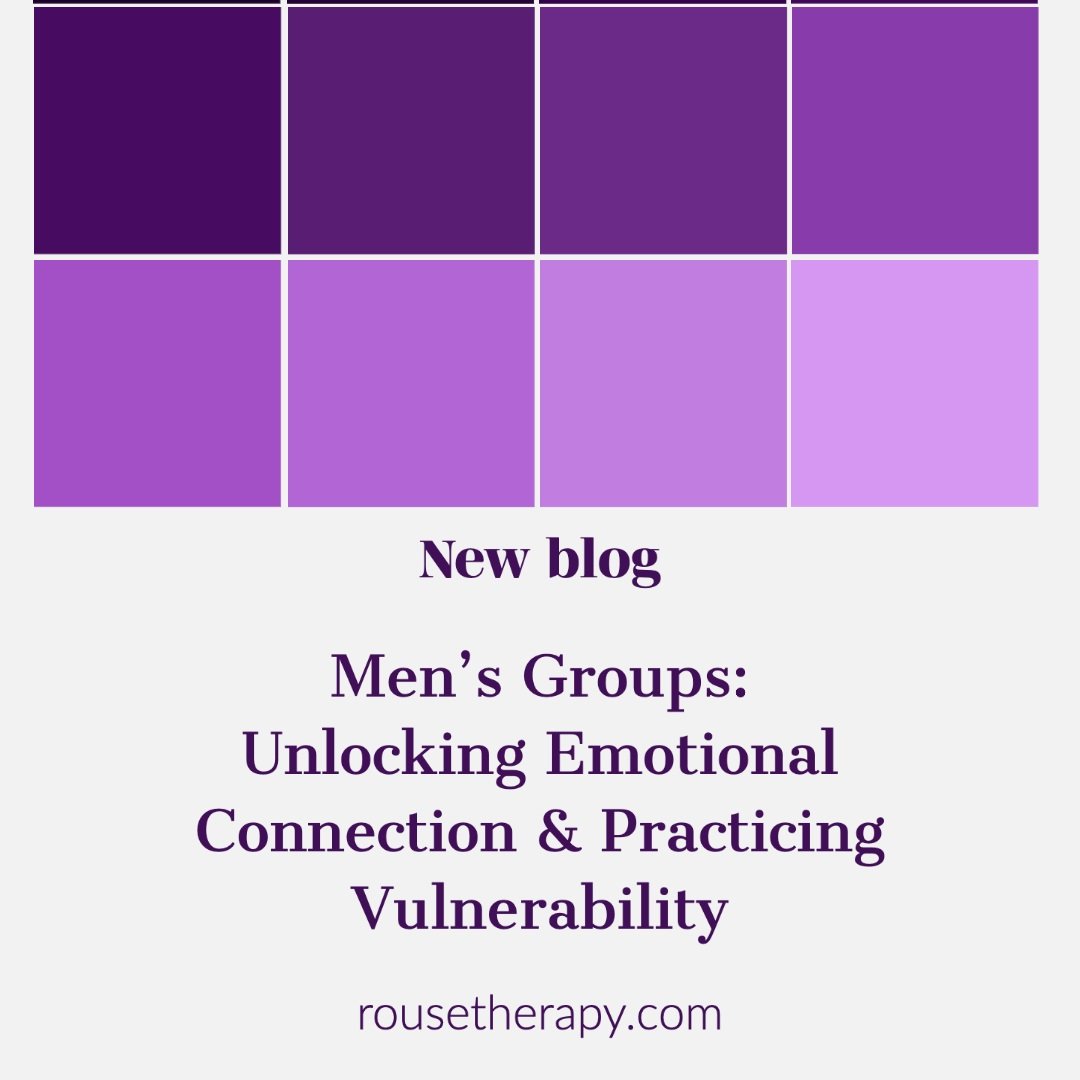
Men's Groups: Unlocking Emotional Connection & Practicing Vulnerability
We continue recruiting for our Anxiously Intimate online men's group in our straight-leaning and queer-learning cohorts. We’ve received a lot of interest and intrigue in our groups and different questions about how the groups are run. So, to help you with your decision to join the group or share with a friend or client, we’ve created this FAQ for more details.
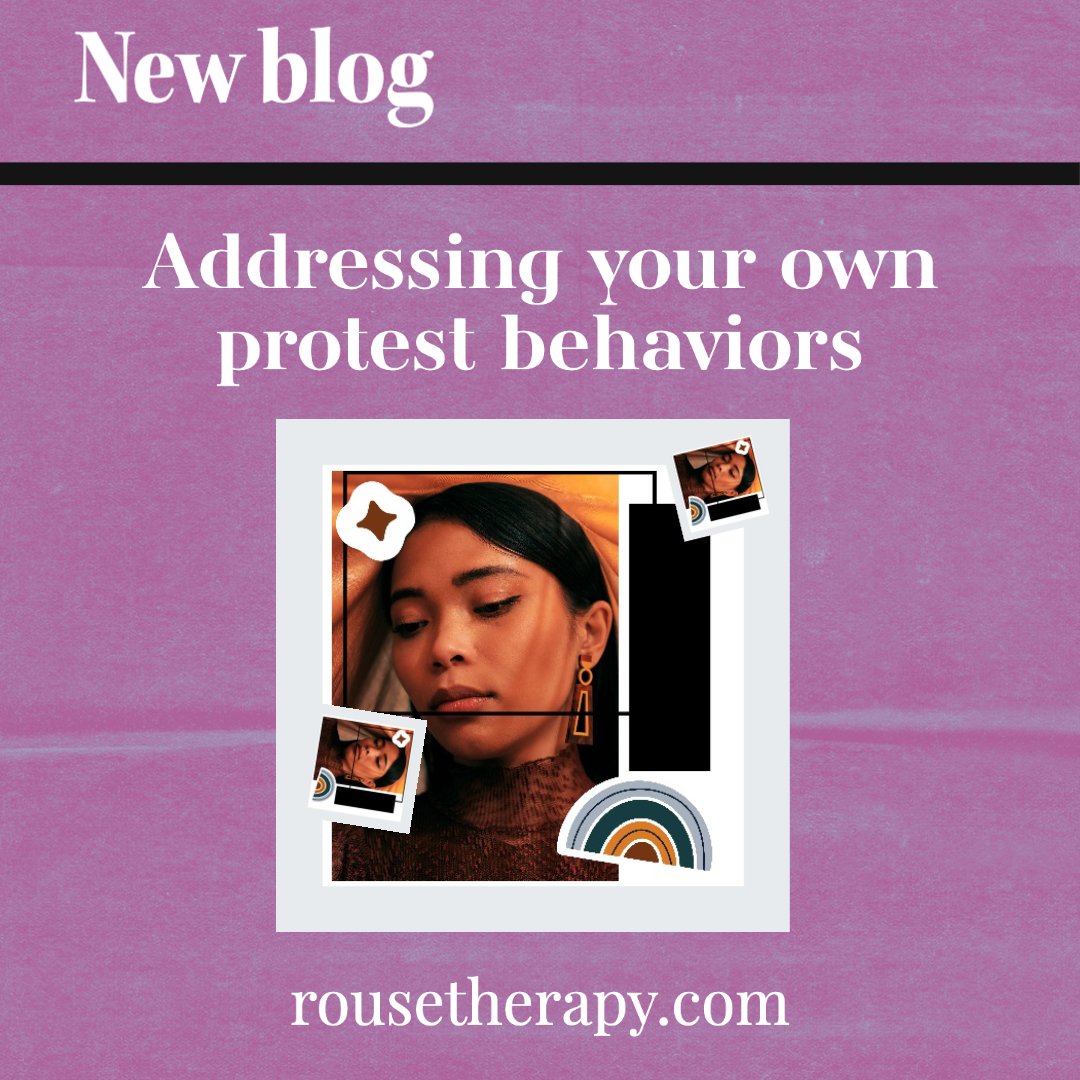
Addressing your own protest behavior
Relationships are not always easy and can be filled with complications. When disagreements arise, the way each person reacts is crucial. Sometimes when individuals feel unheard, they may resort to protest behaviors. Have you ever found yourself in a situation where you just couldn't stop reaching out to someone, demanding attention, or even starting arguments? If so, you might have unknowingly engaged in protest behaviors related to your attachment style. These behaviors often arise when we experience anxiety in a relationship, and they're a way of trying to maintain the connection with our partner. However, protest behaviors can sometimes come off as clingy or even manipulative, so it's important to recognize them and address them healthily. Understanding the roots of your protest behaviors can help you cultivate a more fulfilling love life, whether navigating a new romance or a long-term relationship.
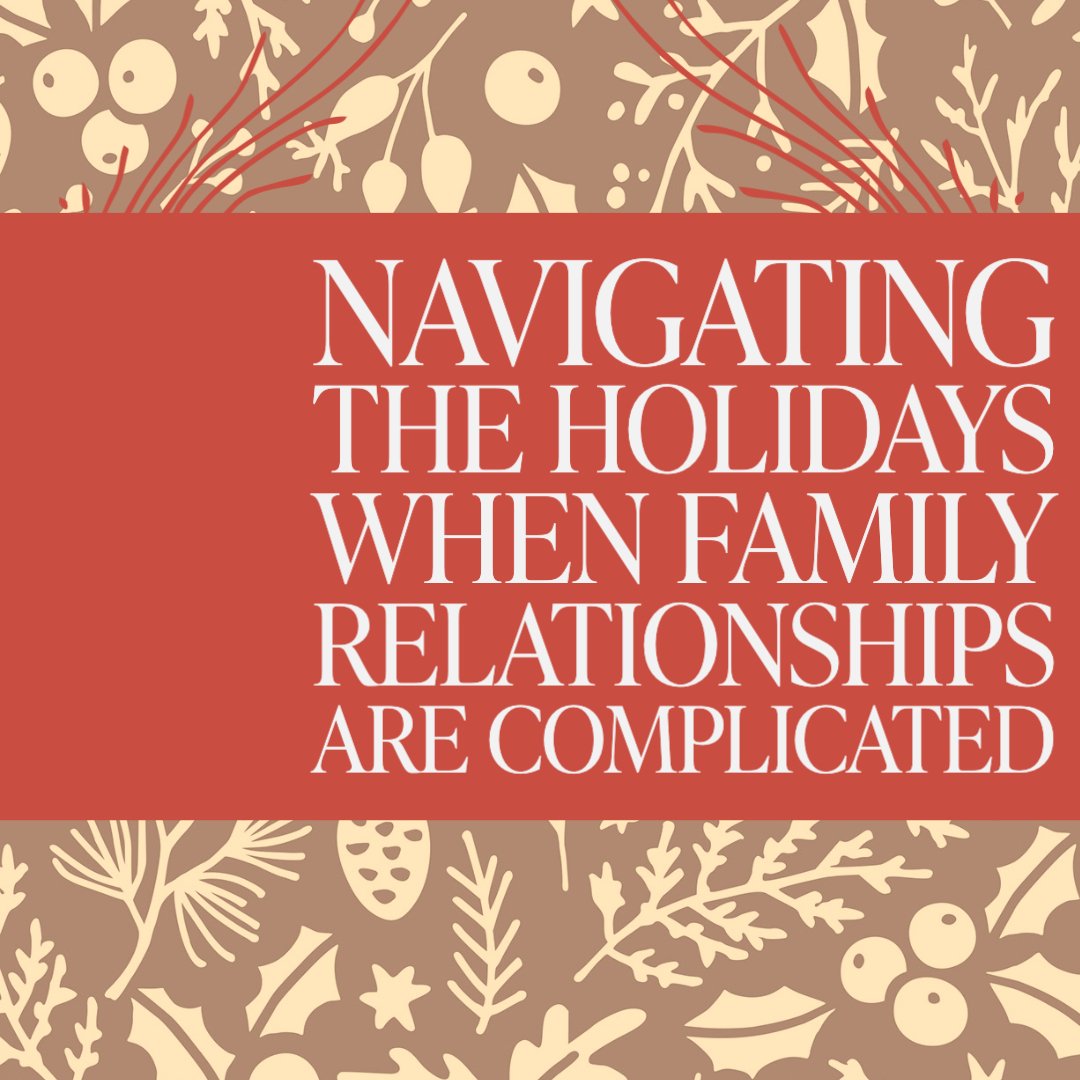
Navigating the Holidays When Family Relationships are Complicated
The holidays are coming up, and for some people that is wonderful news. The warm twinkle of lights around town, the vacation days, cultural or religious traditions and, time with family.
But for a lot of people the holidays can be daunting. During the time of year that prioritizes family, it can feel incredibly isolating when visiting relatives doesn’t feel safe or welcoming. Or it may be off the table entirely for one reason or another.
Whether you’re estranged from your family completely or have strained relations that make the holidays difficult, here are some ways to cope through the holidays:
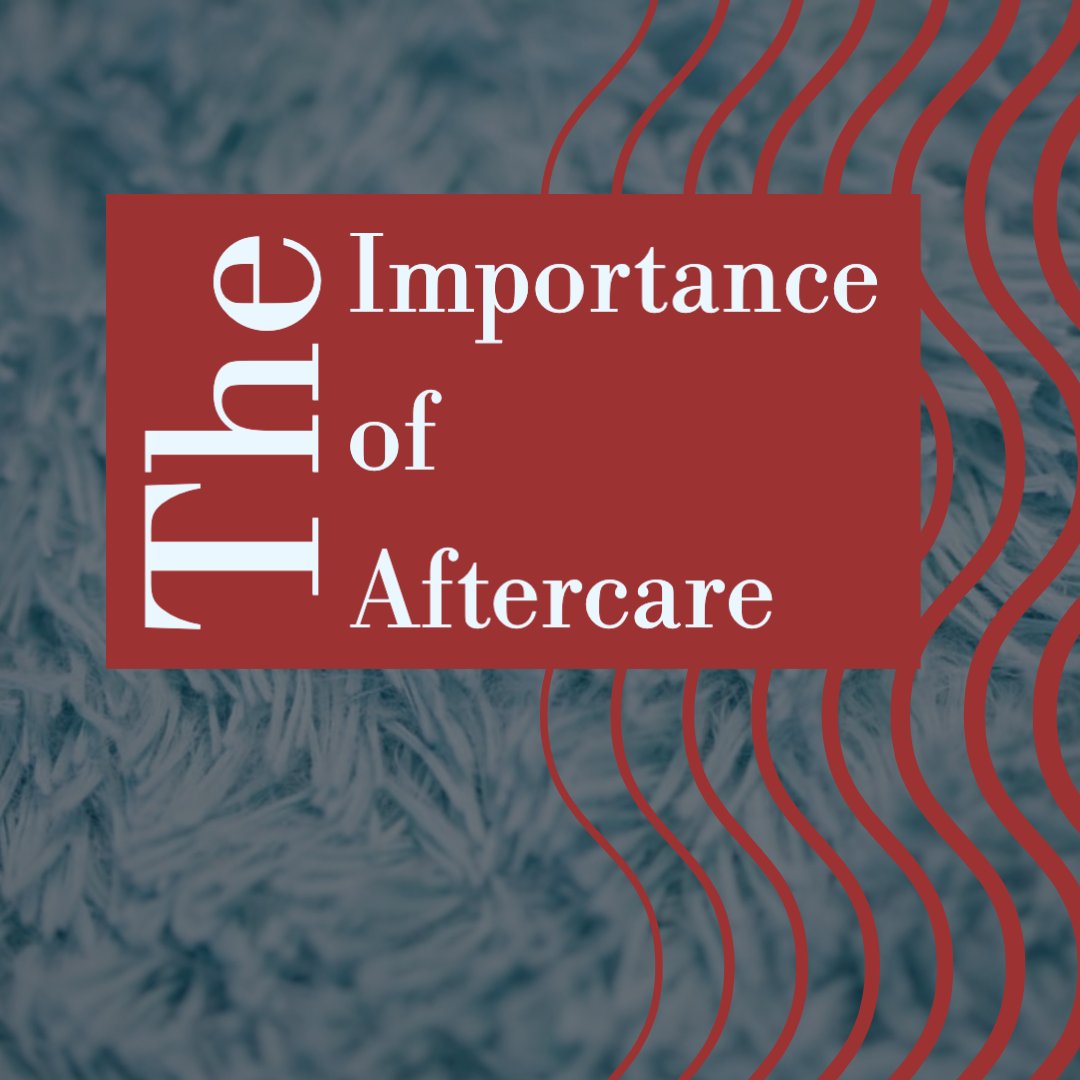
The Importance of Aftercare
We've all heard of the importance of foreplay, but what about afterplay? Aftercare is just as important, if not more so, than foreplay regarding kinky sex. Here's why:
Sexual Aftercare Helps Establish Safety and Connection
One of the most essential aspects of kinky sex is establishing and maintaining a sense of safety and connection with your partner. Aftercare helps to set this safety by creating a space for you and your partner to debrief and check in with each other after your scene. This is a time to discuss what went well and what didn't and to express any emotional reaction you might be having. Sexual aftercare can be time to reflect on the toys or materials that should be paused for a while or which ones to introduce. By connecting with each other after your scene, you can help ensure that everyone feels safe and secure.
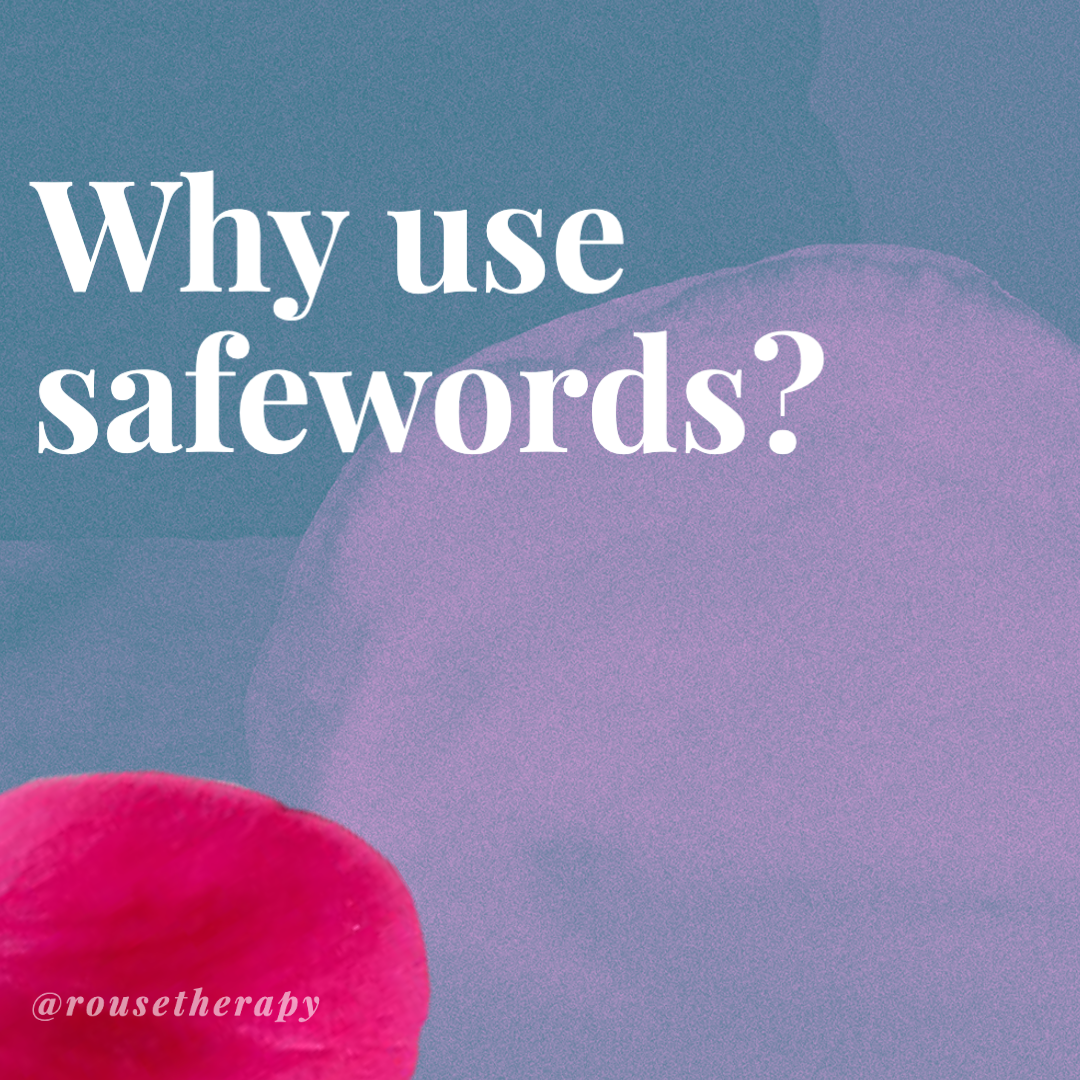
Why use safewords?
Why use safewords?
When it comes to having sex, there are many things to consider. One thing that’s important for everyone to think about is using safewords. But what are they, and why should you use them? Here’s everything you need to know!
Safewords can be really helpful in ensuring both partners have a good time during sex. They’re instrumental if one or both partners are new to kink or BDSM (Bondage/Discipline/Sadism/Masochism). Safewords let each partner know when they’re pushing the other person’s boundaries and when they need to stop. Plus, they can be a fun way to add extra spice to your sex life!
When should we use a safeword?
Safewords are beneficial, and some might say necessary, part of kink. Safewords are used as a safety measure to stop or slow down erotic play. Allowing the slowing down or stopping is especially useful when you’re engaging in types of play with extra risk elements, such as using restraints, inflicting pain, or role-playing.
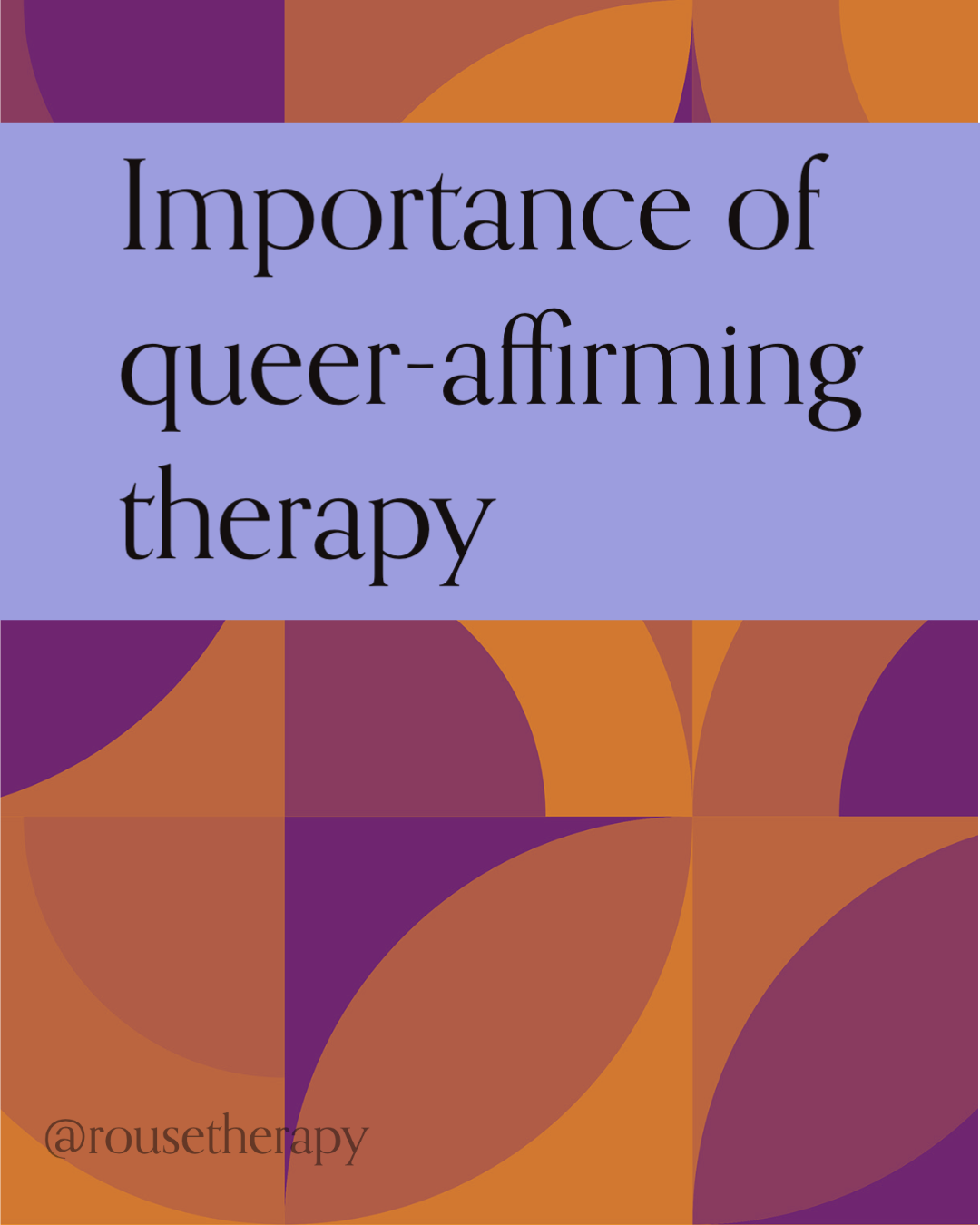
Importance of queer-affirming couples therapy
Therapy is important. Queer-affirming therapy is vital if you're in a queer relationship. Finding a therapist who understands your specific needs and can help you maintain your relationship is crucial. Queer-affirming relationship therapy can be a powerful tool for assisting queer couples in building healthy and sustainable relationships. In this post, we'll explore why queer-affirming therapy is so important, and we'll look at some of the specific benefits it can offer to queer clients.
The therapist can address your concerns without you educating them…
Queer-affirming therapists can support and hold space for you while you explore unique issues in queer partnerships, like:
Coming out
Discrimination and harassment
Resiliency factors in queer communities
Heightened rates of mental health issues related to discrimination
Increased rates of suicide attempts
Historical trauma
Multiply marginalized identities
Queer-affirming couples therapy can be challenging but rewarding because…
you get to learn new communication skills
it allows conflict and repair to create more bonding
learn about and work with your attachment styles
increases self-acceptance and self-compassion
it can reduce shame and anxiety
you can openly explore kink and polyamory without being pathologized
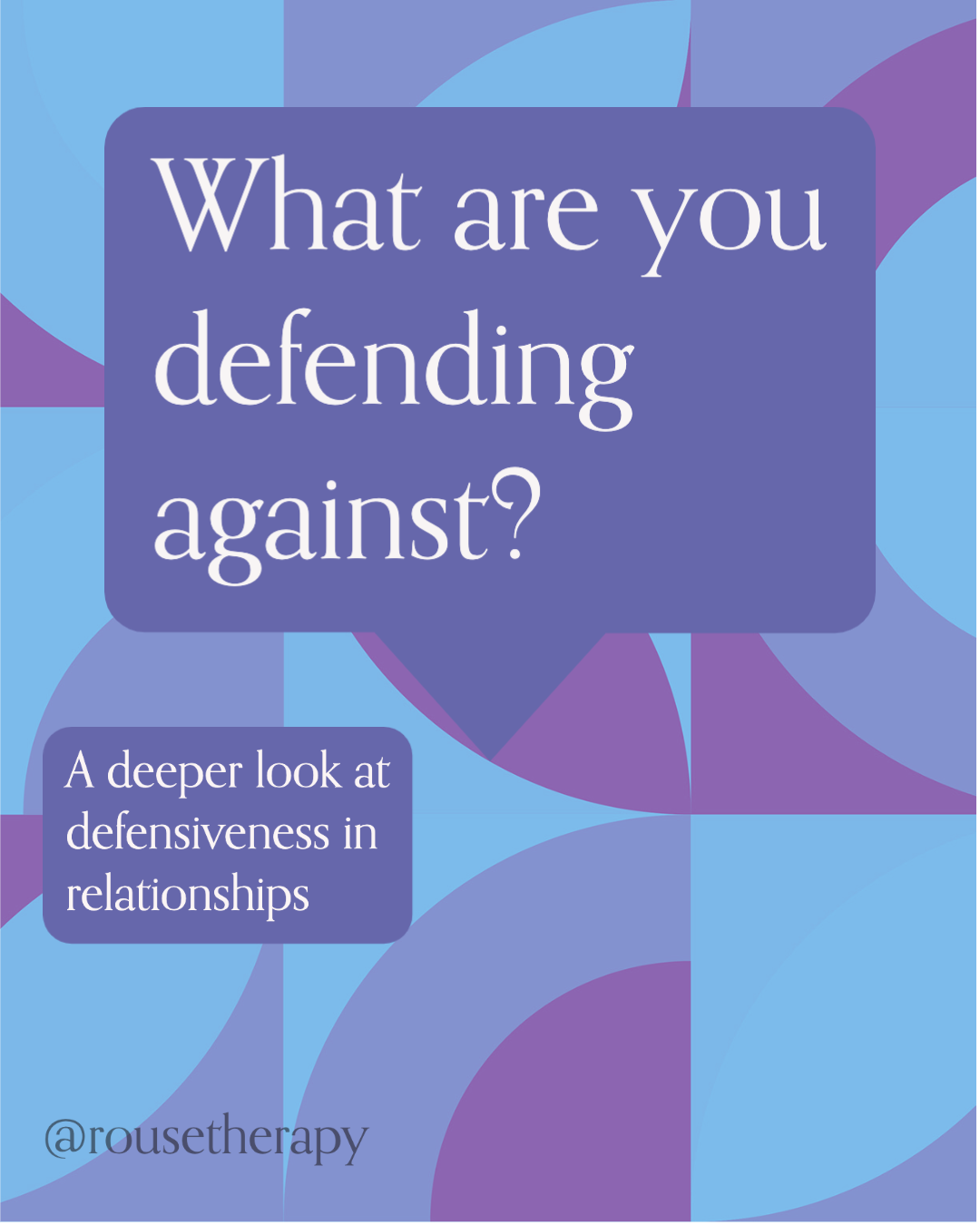
What are you defending against?
We’ve all been there. You’re in a relationship, and something your partner does or says makes you feel defensive. Maybe they criticize your work or say something that hurts your feelings. It can be tough not to react defensively in those moments. But trust us, learning how to stop being defensive is worth it. We covered The Four Horsemen and longer articles on parts of the horsemen like Stonewalling in previous posts. In this post, we’ll look at defensiveness, how it shows up, what you can do to start working against it, and most importantly, how to better understand your defenses to heal your inner wounds.
What does defensiveness look like?
Unintended Defensiveness: This style of defensiveness is reactive, meaning that it’s an unconscious habit. An example of Unintended Defensiveness can be when a partner makes a mistake, causes harm, but won’t take responsibility because they “didn’t mean to.” This reaction can be connected to feelings of insecurity or related to trauma, i.e., humiliation or criticism by a caregiver or former partner. Defensiveness can also be connected to an inability to be compassionate to yourself while also taking responsibility for your mistakes.
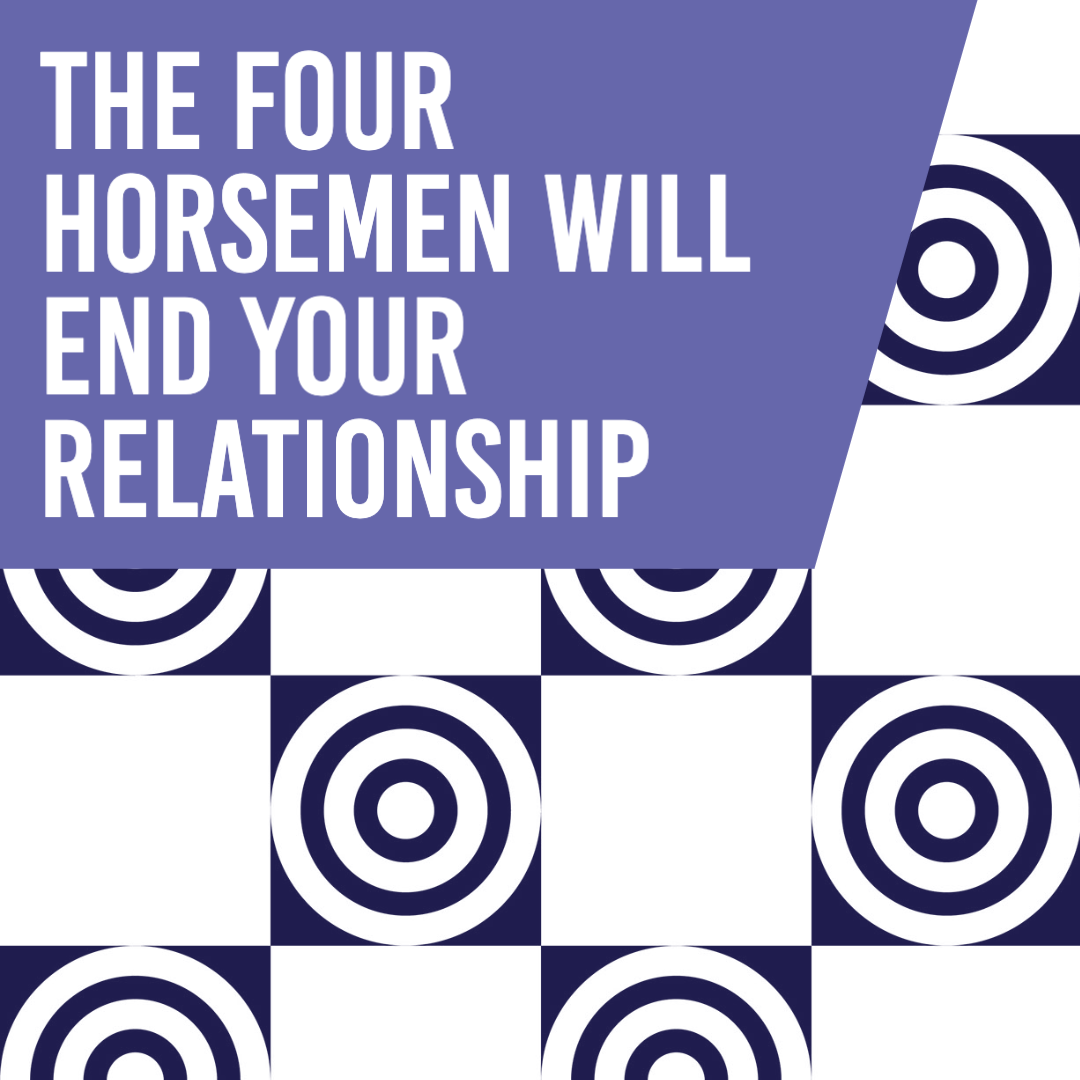
The Four Horsemen will end your relationship
Often when working with individuals, couples, and polycules in relationship therapy, we first start with helping our clients identify habits and patterns that have a negative hit on their relationship. In relationships, four habits can cause a lot of damage. If you can identify these patterns and steer clear of them, your relationship will be better off for it. Today, we're going to talk about what they are and how to avoid them.
In 1986 John Gottman designed "The Love Lab," where he could observe couples "in their natural habitat," as it were. Through this study and continued research with thousands of couples, John and Sue Gottman discovered four reliable predictors for divorce. Those predictors are known as "The Four Horsemen" or "Foursemen" if you're short on time. Let's take a look at them in detail:
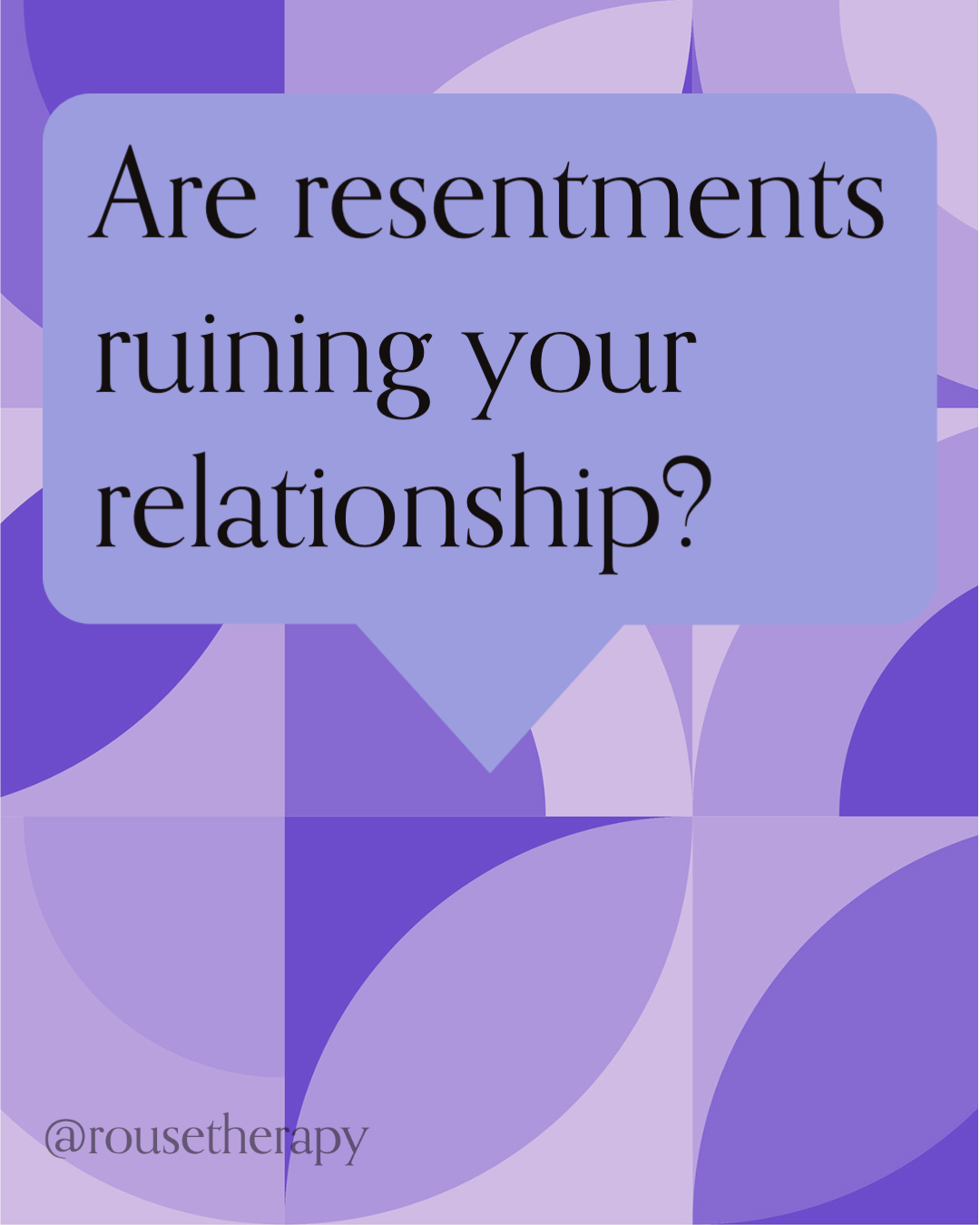
Are resentments ruining your relationship?
Disclaimer: This is for educational purposes only. This article is not a replacement for therapy, direct advice, nor is it offered to reflect your current circumstances. Instead, we encourage you to use good old-fashioned critical thinking skills when considering the following article for your own life.
Sometimes when I’m meeting someone, I make the mistake of telling them that I’m a sex and relationship therapist. It’s usually not a problem, but depending on my mood, there are times when I don’t want to talk about therapy to someone on my day off. My slip sometimes lands very well, but other times the person either dives into their issues or backs away slowly like I’m a mind reader (*wiggles fingers*).
Recently at a made-up party, I told a guy I was a sex and relationship therapist, and he launched into all the problems he has with his boyfriend. In the first ten minutes, I learned how he was frustrated and disappointed with his boyfriend. I heard about all the no-longer-cute idiosyncrasies of his boyfriend that are now causing distance.
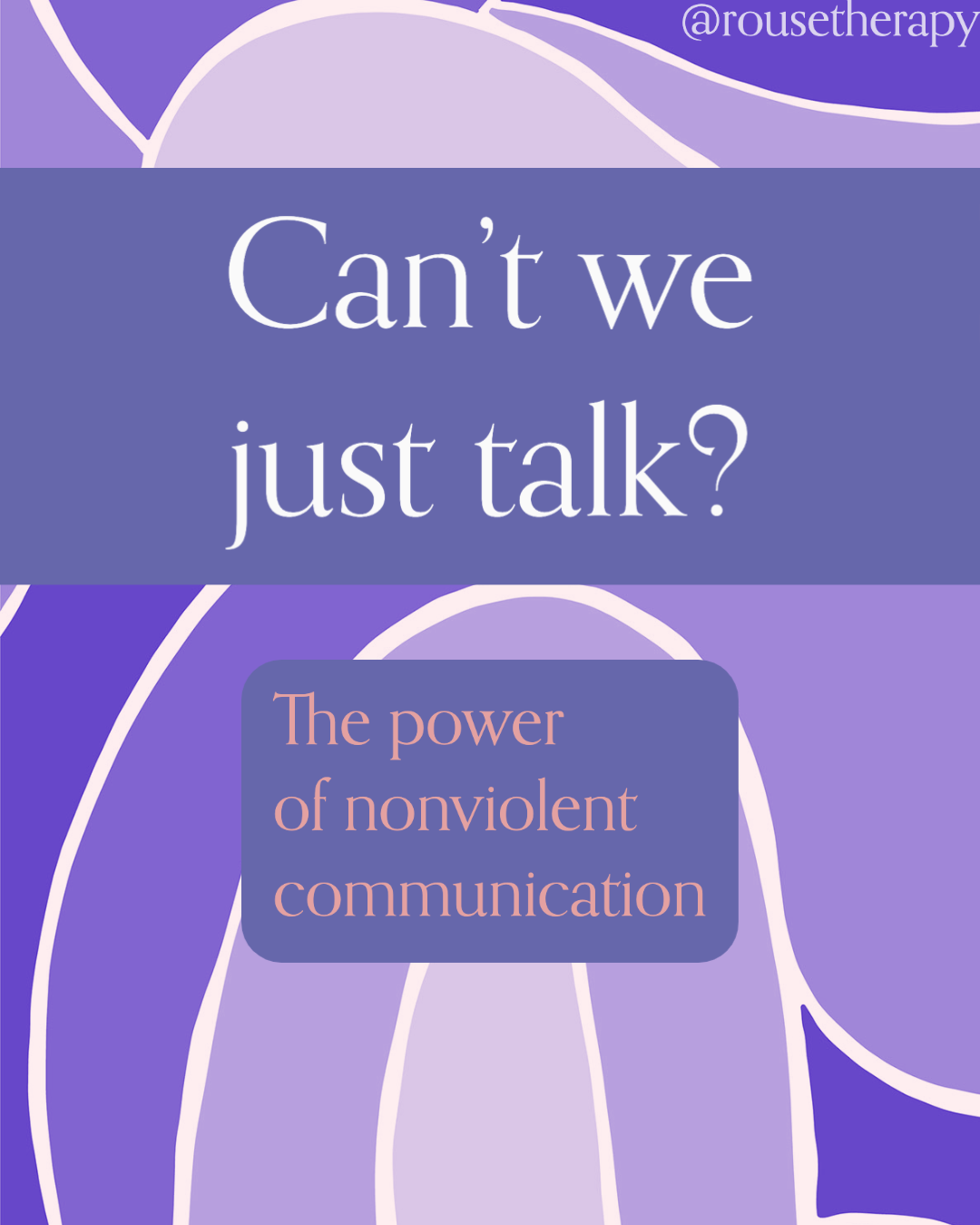
Can't we just talk? The power of nonviolent communication
If you're like most people, you've probably heard of nonviolent communication (or NVC), but don't really know what it is or how it works. In a nutshell, NVC is a way of communicating that's designed to create understanding and connection between people. It does this by helping us to express our feelings and needs in a clear and concise way. Plus, it's a great tool for dealing with difficult conversations! If you're interested in learning more about NVC, or want to start using it yourself, keep reading! I'll explain the basics of this approach to communication, and share some tips for getting started.
We recently came across this video and found it to be a helpful way of describing NVC and it’s uses.
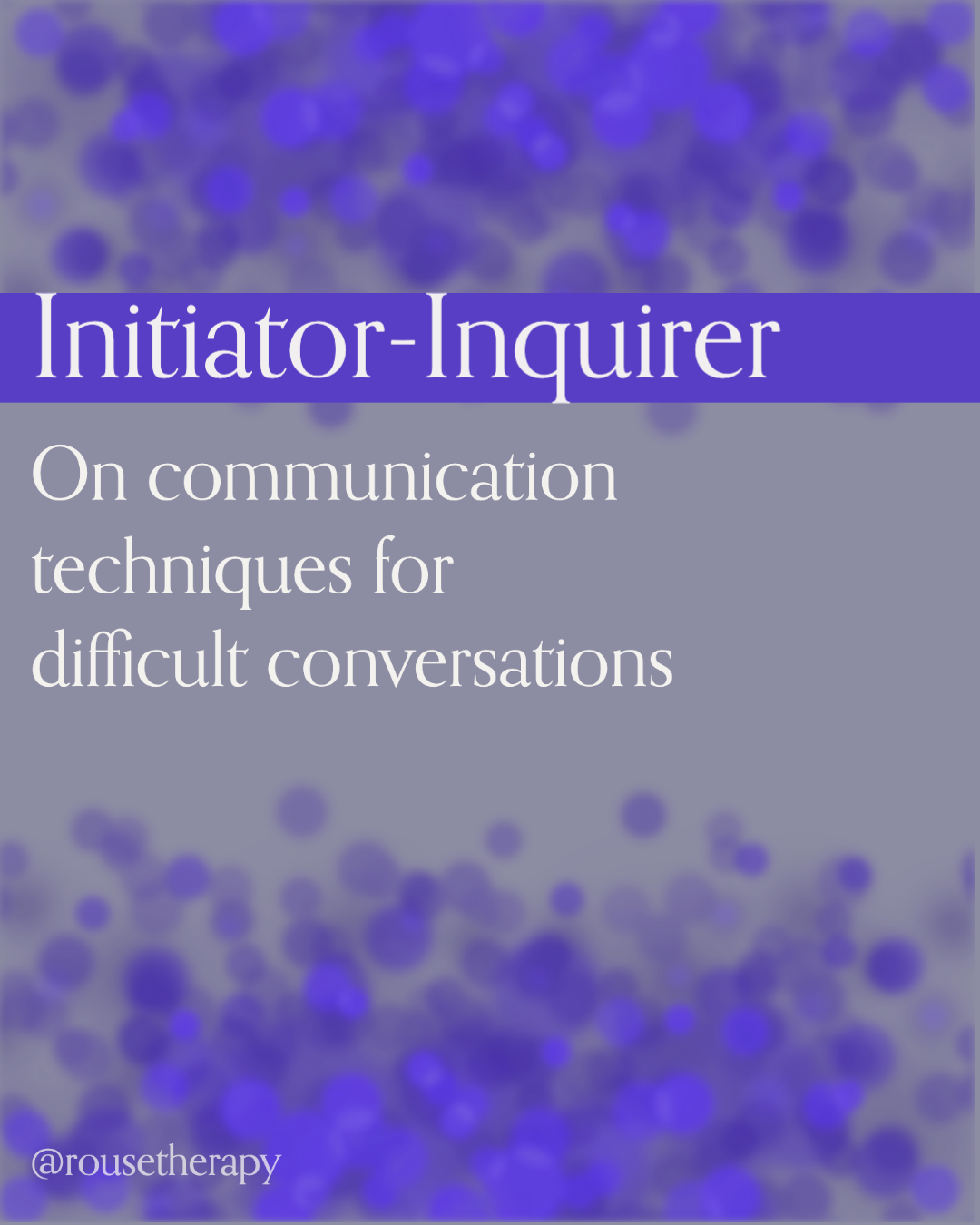
Initiator-Inquirer: Difficult conversations without fighting
It can be tough to figure out how to communicate with your partner. When’s a good time to talk with your partner? Do you need to take turns when talking? Do you keep questioning and investigating, or just go along with what they’re saying? You go into it feeling grounded and at peace, telling yourself you’ll stay calm … only to lose your shit a few minutes later.
Figuring out the right communication strategy for couples can make all the difference in your relationship. So let’s take a look at an intervention we often use at Rouse to help partners slow down and really communicate with each other.
What is Initiator-Inquirer?
Initiator-Inquirer is a communication exercise developed by Ellyn Bader and Pete Pearson from The Couples Institute in Menlo Park, CA. Bader and Pearson are highly experienced couples therapists who have been training upcoming couples therapists for over two decades.

DEAR MAN for Desires
We all have them. Our secret sexual desires that we keep hidden away, scared to share in case our partner doesn't find them desirable (or even worse, weird). But what happens when you do finally summon up the courage to tell your partner about that thing you've always wanted to try? It can be daunting - but it doesn't have to be.